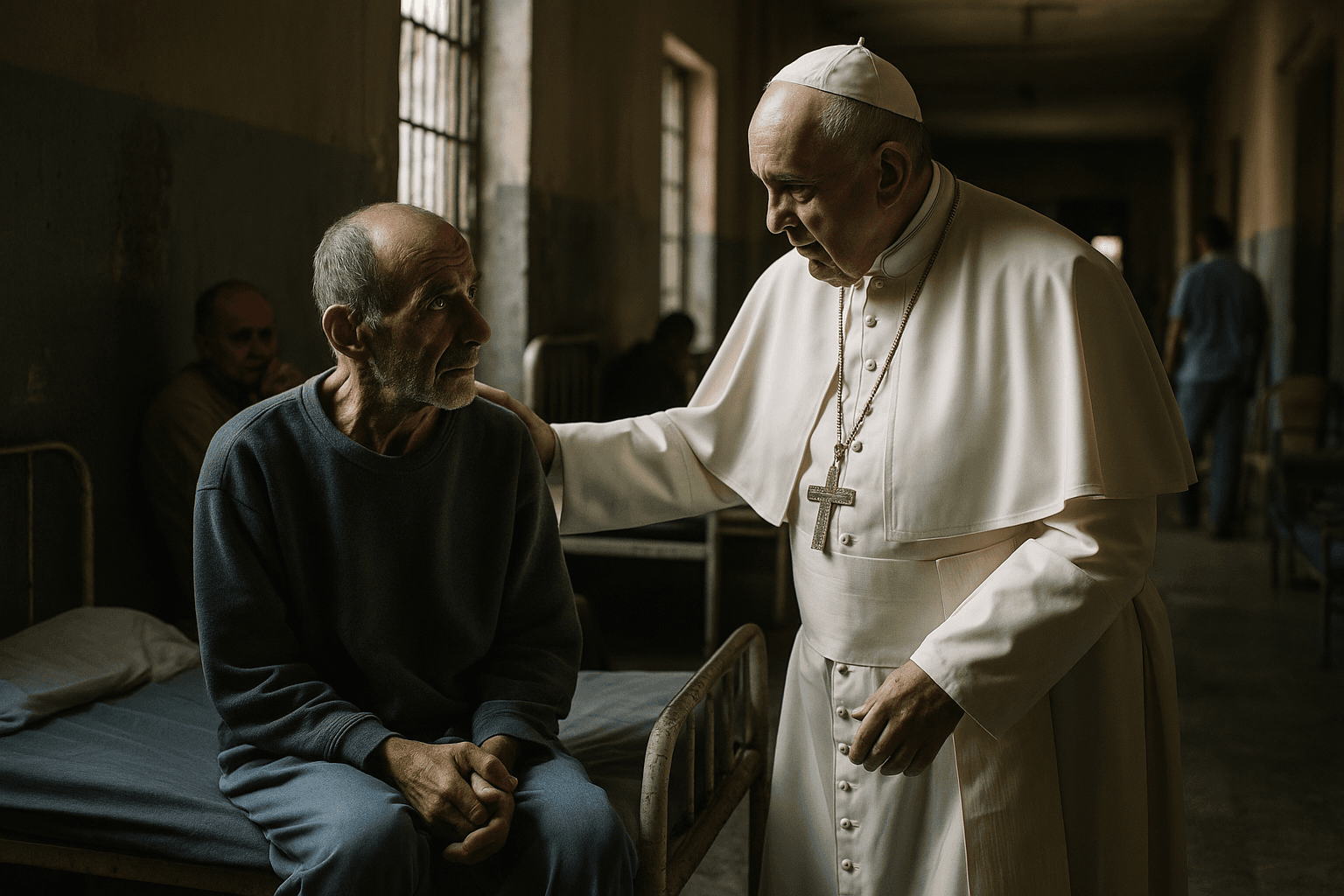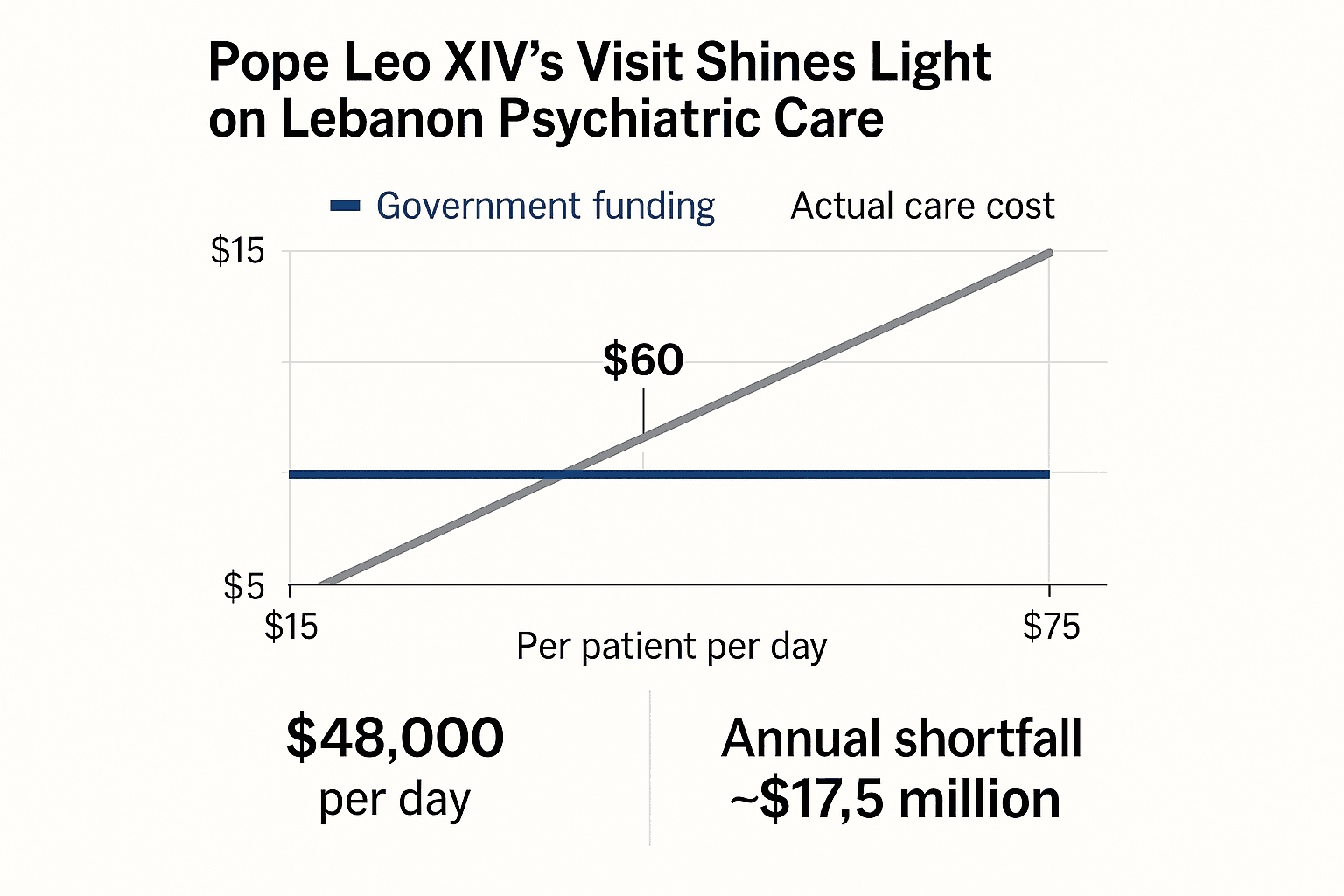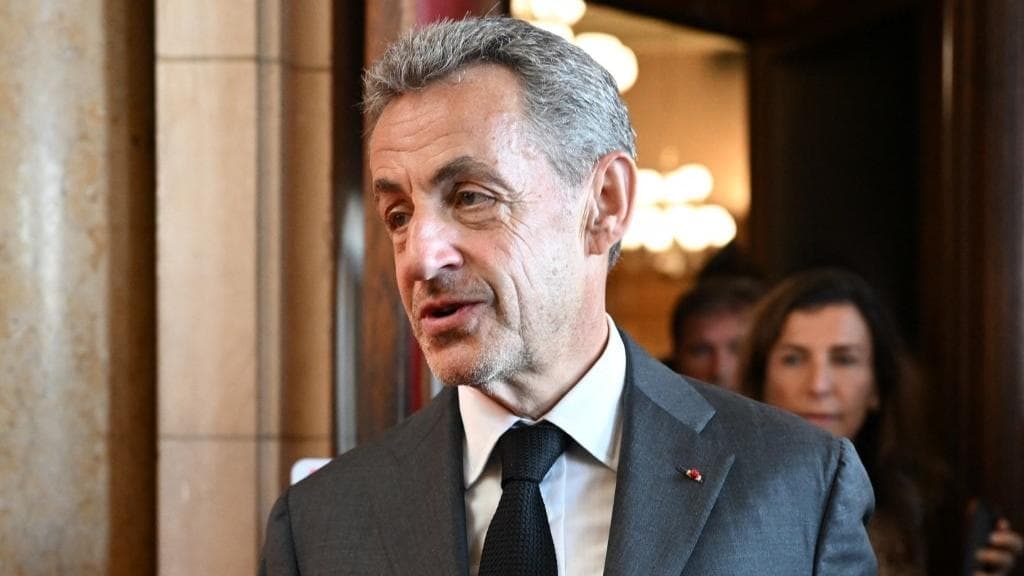Pope Leo XIV's Visit Shines Light on Lebanon Psychiatric Care
Pope Leo XIV will visit De La Croix Psychiatric Hospital on December 2, a symbolic gesture that hospital staff say offers overdue recognition for about 800 neglected patients. The visit draws attention to a stark funding gap in Lebanon's mental health system, a matter that affects families, public budgets, and the broader recovery of the country’s health services.
Staff at De La Croix Psychiatric Hospital in Jal El Dib welcomed the planned visit by Pope Leo XIV on December 2, calling it an overdue affirmation for psychiatric patients often sidelined amid Lebanon's deep economic crisis. The facility, run by Franciscan nuns, cares for roughly 800 residents and has struggled as state support has dwindled and operating costs have risen.
Hospital staff said the state provides approximately fifteen dollars per patient per day, while actual care costs about seventy five dollars per patient per day. That gap amounts to sixty dollars per patient each day, or about forty eight thousand dollars every day for the hospital’s population. Annually that shortfall totals roughly seventeen and a half million dollars based on those daily figures. Staff say the chronic underfunding has constrained basic maintenance, staffing, medications and therapeutic programming.
The papal visit, part of the pope’s first foreign trip which also includes Turkey, has prompted visible preparations at the hospital. Staff reported renovations to wards and communal spaces and rehearsals by a choir of about fifty patients. For administrators and nurses the visit is more than ceremony. It is an instrument of visibility, bringing attention to a population that staff say is often isolated from family networks and from policy priorities in Beirut.

Lebanon’s financial collapse has eroded public services across the board, with health care among the most affected areas. For psychiatric facilities the implications are acute because mental health care typically requires sustained staffing levels, regular medication supply chains, and rehabilitative services that are costly and difficult to scale back without harming patients. The funding shortfall at De La Croix illustrates a systemic problem, where nominal state subsidies meet only a fraction of the real cost of care.
The market and policy implications are multifaceted. In the near term increased visibility may catalyze donor contributions from faith based groups and international aid agencies, and could unlock emergency support for renovations and supplies. Longer term, however, sustainable solutions will require public finance adjustments including reallocation of health budgets, reforms to how mental health is integrated into public insurance schemes, or targeted international financing linked to structural reforms. Without such measures facilities may remain dependent on ad hoc charity and external grants.

The visit also highlights broader economic trends that complicate any policy fix. Lebanon has experienced currency depreciation, inflation and fiscal pressure that have eroded government capacity to maintain social services. The resulting constraints push health providers to ration services or seek private funding, which in turn increases pressure on families and on the wider health market.
For patients at De La Croix the papal visit will be a day of recognition and respite. For policymakers and donors it is a reminder that mental health requires predictable funding and policy attention if Lebanon is to rebuild a resilient health system in the years ahead.


